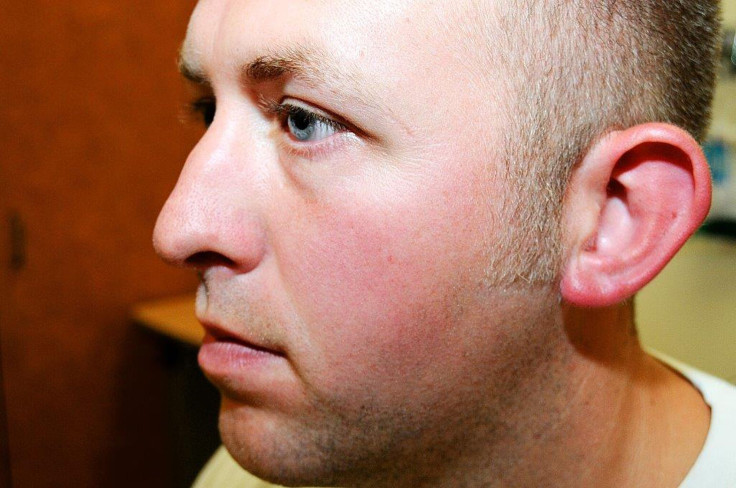Darren Wilson Testimony: Should He Have Shot Mike Brown?

To Darren Wilson, shooting and killing Mike Brown was unavoidable, according to the police officer's testimony to the grand jury. The hulking teen (Brown was 6-foot-4, 290 pounds) was aggressive toward him, put his hand over the Ferguson officer’s gun and charged at him with his hand going into his waistband, said Wilson. But throughout the series of events that led to the shots that killed the unarmed black teen Aug. 9, Wilson could have defused the situation, according to a policing expert.
“There are many things he could’ve done differently,” said Samuel Walker, a criminal justice professor at the University of Nebraska at Omaha who has been a consultant to police departments and cities. “This episode shouldn’t ever have happened.”
Wilson could have started with the language he used toward Brown when he first encountered the 18-year-old and his friend, Dorian Johnson, 22, on Canfield Drive in Ferguson on that August day, Walker said. The officer allegedly told Brown and Johnson to “get the f--- off the sidewalk” or “get the f--- on the street,” Johnson said in an account sent to CNN.
“That kind of rude and offensive language, it has built up distrust and anger at the police,” Walker said. Instead, Wilson should have been “stern, but respectful” toward the two young men, he said.
Wilson’s accounts -- both in his grand jury testimony and in an exclusive interview with George Stephanopoulos of ABC News -- don’t mention that he swore. The differing accounts between Wilson and Brown’s supporters highlight how much isn't known about the encounter that ended in Brown’s death. The grand jury, which convened in mid-August, on Monday announced its decision not to indict Wilson, 28, so there won’t be a trial to determine the facts.
Taking Wilson’s story at face value, the Ferguson police officer stuck to his training in his interaction with Brown, according to Maria Haberfeld, a professor at John Jay College of Criminal Justice in New York City.
“He absolutely went by the book,” Haberfeld said. Police officers act based on what is called the “continuum of force,” which ranged from verbal warnings to lethal force, and that Wilson followed that continuum.
Wilson said Brown cursed at him and slammed his squad car door before punching him in the face. A scuffle ensued in the squad car with a barrage of punches from Brown, according to Wilson. In those few seconds, the officer said he went over in his mind a list of nonlethal options to subdue Brown -- macing the teen would have also injured Wilson because they were close to each other, and the cop couldn’t reach for his nightstick -- before pulling out his gun, he said.
“When a police officer is attacked, all these steps in the continuum can escalate from one to another very quickly,” Haberfeld said. “They absolutely are authorized to use deadly force.”
Wilson said he was unsure if Brown had a gun, but Haberfeld said that isn’t a factor in whether the cop was justified in shooting Brown. She said Wilson’s contention that his life was in danger coupled with Brown’s alleged actions were enough to warrant lethal force.
“It’s not a proportionality thing,” she said. “It’s the perception that doesn’t have to do with whether or not somebody was armed. The perception of threat is related to your visual assessment of the situation.”
Brown’s size -- Wilson described him as being like “Hulk Hogan” -- was part of the officer’s assessment. “The fear factor is certainly amplified when you’re dealing with someone who physically outweighs you,” Haberfeld said.
But Wilson, at 6-foot-4 and 210 pounds, isn’t exactly scrawny. Walker said the officer should have been able to deal with Brown without firing shots. After the scuffle, the two men were separated, which would have given Wilson time to take out his mace or baton, he said.
Police “are trained in take-down techniques when there’s a physical struggle,” Walker said. “I think there were many missed opportunities here.”
Had Wilson been able to get out his nightstick or mace, it might not have made a difference. Those weapons are not as effective when an officer is physically threatened, Haberman said.
“This was a big and violent guy and I don’t have any reason to doubt Wilson when he said he attacked him,” she said. “Police officers should be given the benefit of the doubt. They don’t wake up in the morning and go out and kill other people. They wake up and go out to protect other people.”
© Copyright IBTimes 2024. All rights reserved.






















